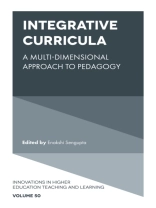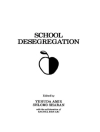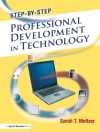Creativity, critical thinking and community-oriented learning have taken on new dimension and relevance in education. As a result, many academicians feel that current curricula need to be re-designed with the challenges of today’s global landscape in mind. Integrated curricula rely heavily on interdisciplinary approaches that encourage student engagement, self-awareness and experiential learning. Providing practical advice based on empirical examples, Integrative Curricula: A Multi-Dimensional Approach to Pedagogy explores the phenomenon of integrative curricula and its relevant issues.
Emphasizing a need for flexibility and, above all, a student-centered focus, chapters discuss different theoretical frameworks and models utilized, benefits gained and challenges encountered in the process of curricula integration. They include case studies, policies and other methods that have been implemented and adopted in universities to enhance their teaching practices. Contributors also address issues such as integrating interdisciplinary curricula and building relationships across traditional subjects and learning experiences.
As integrative curricula provide a framework through which a standard, meaningful benchmark can be applied to student learning, so will Integrative Curricula: A Multi-Dimensional Approach to Pedagogy act as a fundamental resource to facilitate, advise and support higher education institutions in putting forward practices that are most effective for teaching and, ultimately, the benefit of student development.












